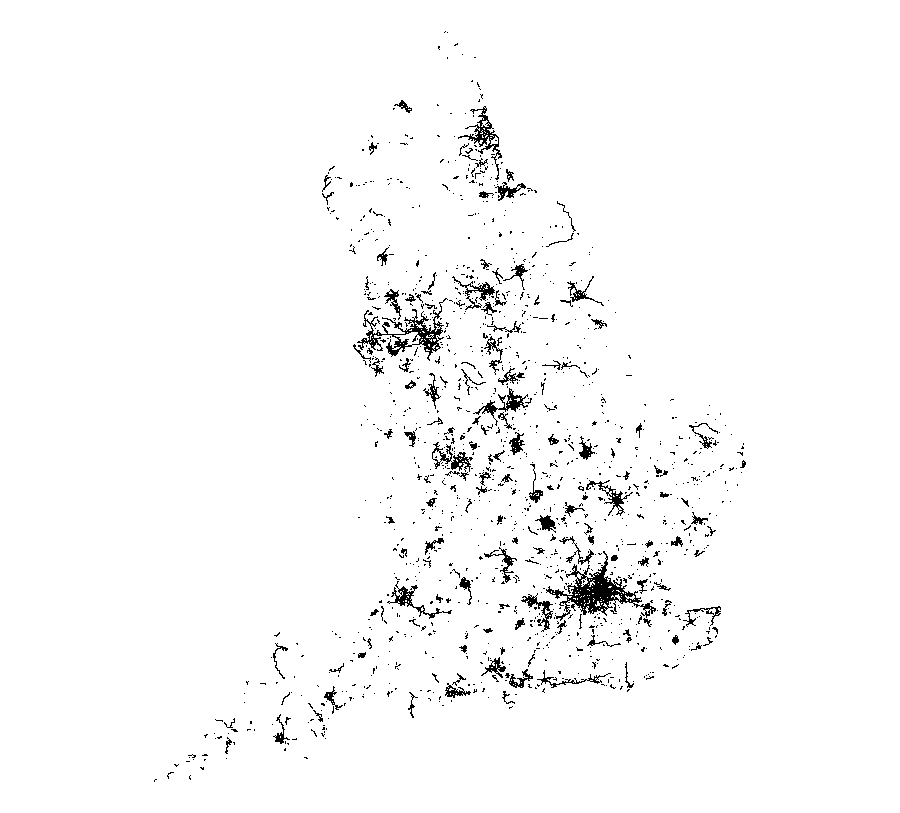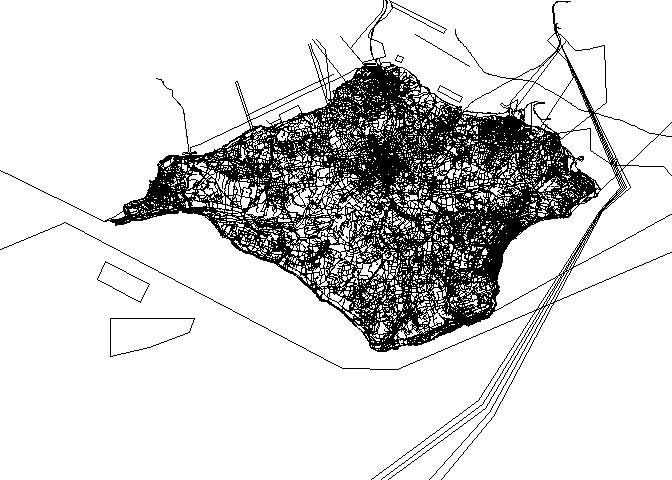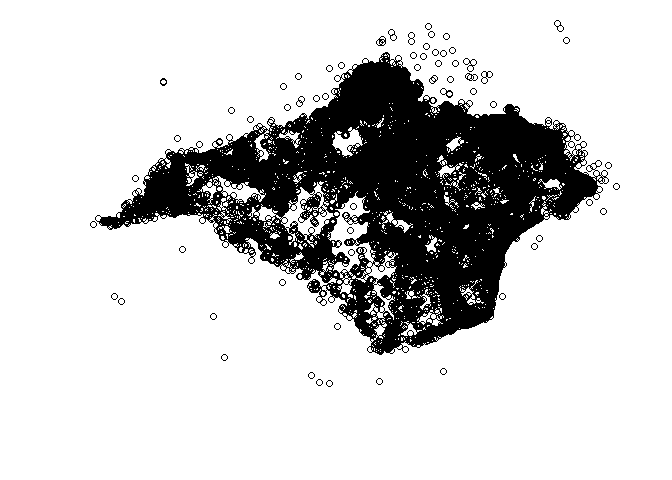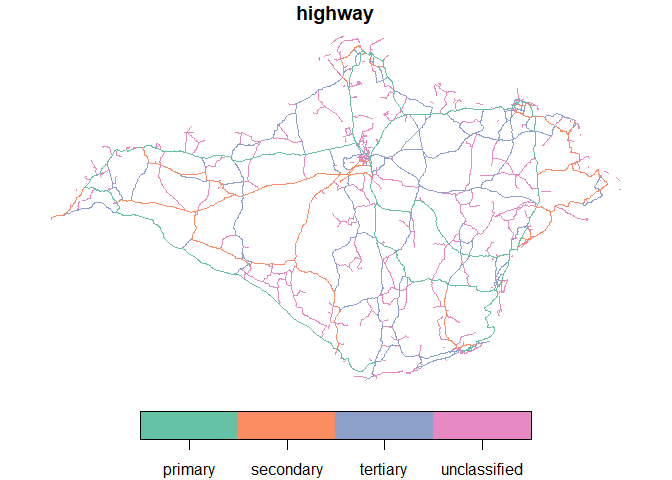The goal of osmextract is to make it easier for people to access OpenStreetMap (OSM) data for reproducible research. OSM data is the premier source of freely available, community created geographic data worldwide. We aim to enable you to extract it for data-driven work in the public interest.
osmextract matches, downloads, converts and imports bulk OSM data hosted by providers such as Geofabrik GmbH and bbbike. For information on alternative providers and how to add them see the providers vignette.
Why osmextract?
The package answers a common question for researchers who use OSM data: how to get it into a statistical environment, in an appropriate format, as part of a computationally efficient and reproducible workflow? Other packages answer parts of this question. osmdata, for example, is an R package that provides an R interface to the Overpass API, which is ideal for downloading small OSM datasets. However, the API is rate limited, making it hard to download large datasets. As a case study, try to download all cycleways in England using osmdata:
library(osmdata)
cycleways_england = opq("England") %>%
add_osm_feature(key = "highway", value = "cycleway") %>%
osmdata_sf()
# Error in check_for_error(doc) : General overpass server error; returned:
# The data included in this document is from www.openstreetmap.org. The data is made available under ODbL. runtime error: Query timed out in "query" at line 4 after 26 seconds. The query stops with an error message after around 30 seconds. The same query can be made with osmextract as follows, which reads-in almost 100k linestrings in less than 10 seconds, after the data has been downloaded in the compressed .pbf format and converted to the open standard .gpkg format. The download-and-conversion operation of the OSM extract associated to England takes approximately a few minutes, but this operation must be executed only once. The following code chunk is not evaluated.
library(osmextract)
cycleways_england = oe_get(
"England",
quiet = FALSE,
query = "SELECT * FROM 'lines' WHERE highway = 'cycleway'"
)
par(mar = rep(0.1, 4))
plot(sf::st_geometry(cycleways_england))
The package is designed to complement osmdata, which has advantages over osmextract for small datasets: osmdata is likely to be quicker for datasets less than a few MB in size, provides up-to-date data and has an intuitive interface. osmdata can provide data in a range of formats, while osmextract only returns sf objects. osmextract’s niche is that it provides a fast way to download large OSM datasets in the highly compressed pbf format and read them in via the fast C library GDAL and the popular R package for working with geographic data sf.
Installation
You can install the released version of osmextract from CRAN with:
install.packages("osmextract")You can install the development version from GitHub with:
# install.packages("remotes")
remotes::install_github("ropensci/osmextract")Load the package with:
library(osmextract)
#> Data (c) OpenStreetMap contributors, ODbL 1.0. https://www.openstreetmap.org/copyright.
#> Check the package website, https://docs.ropensci.org/osmextract/, for more details.To use alongside functionality in the sf package, we also recommend attaching this geographic data package as follows:
Warnings:
The functions defined in this package may return a warning message like
if the user is running an old version of GDAL (<= 3.0.0) or PROJ (<= 6.0.0). See here for more details. Nevertheless, every function should still work correctly. Please, raise a new issue if you find any odd behaviour.
Basic usage
Give osmextract a place name and it will try to find it in a list of names in the specified provider (Geofabrik by default). If the name you give it matches a place, it will download and import the associated data into R. The function oe_get() downloads (if not already downloaded) and reads-in data from OSM providers as sf objects. By default oe_get() imports the lines layer, but any layer can be read-in by changing the layer argument:
osm_lines = oe_get("Isle of Wight", stringsAsFactors = FALSE, quiet = TRUE)
osm_points = oe_get("Isle of Wight", layer = "points", stringsAsFactors = FALSE, quiet = TRUE)
nrow(osm_lines)
#> [1] 51966
nrow(osm_points)
#> [1] 68769
par(mar = rep(0, 4))
plot(st_geometry(osm_lines), xlim = c(-1.59, -1.1), ylim = c(50.5, 50.8))
plot(st_geometry(osm_points), xlim = c(-1.59, -1.1), ylim = c(50.5, 50.8))

The figures above give an insight into the volume and richness of data contained in OSM extracts. Even for a small island such as the Isle of Wight, it contains over 50k features including ferry routes, shops and roads. The column names in the osm_lines object are as follows:
names(osm_lines) # default variable names
#> [1] "osm_id" "name" "highway" "waterway" "aerialway"
#> [6] "barrier" "man_made" "railway" "z_order" "other_tags"
#> [11] "geometry"Once imported, you can use all functions for data frames in base R and other packages. You can also use functions from the sf package for spatial analysis and visualisation. Let’s plot all the major, secondary and residential roads, for example:
ht = c("primary", "secondary", "tertiary", "unclassified") # highway types of interest
osm_major_roads = osm_lines[osm_lines$highway %in% ht, ]
plot(osm_major_roads["highway"], key.pos = 1)
The same steps can be used to get other OSM datasets (examples not run):
malta = oe_get("Malta", quiet = TRUE)
andorra = oe_get("Andorra", extra_tags = "ref")
leeds = oe_get("Leeds")
goa = oe_get("Goa", query = "SELECT highway, geometry FROM 'lines'")If the input place does not match any of the existing names in the supported providers, then oe_get() will try to geocode it via Nominatim API, and it will select the smallest OSM extract intersecting the area. For example (not run):
oe_get("Milan") # Warning: It will download more than 400MB of data
#> No exact match found for place = Milan and provider = geofabrik. Best match is Iran.
#> Checking the other providers.
#> No exact match found in any OSM provider data. Searching for the location online.
#> ... (extra messages here)For further details on using the package, see the Introducing osmextract vignette.
Persistent download directory
The default behaviour of oe_get() is to save all the files in a temporary directory, which is erased every time you restart your R session. If you want to set a directory that will persist, you can add OSMEXT_DOWNLOAD_DIRECTORY=/path/for/osm/data in your .Renviron file, e.g. with:
usethis::edit_r_environ()
# Add a line containing: OSMEXT_DOWNLOAD_DIRECTORY=/path/to/save/filesWe strongly advise you setting a persistent directory since working with .pbf files is an expensive operation, that is skipped by oe_*() functions if they detect that the input .pbf file was already downloaded.
You can always check the default download_directory used by oe_get() with:
Next steps
We would love to see more providers added (see the Add new OpenStreetMap providers for details) and see what people can do with OSM datasets of the type provided by this package in a reproducible and open statistical programming environment for the greater good. Any contributions to support this or any other improvements to the package are very welcome via our issue tracker.
Licence
We hope this package will provide easy access to OSM data for reproducible research in the public interest, adhering to the condition of the OdBL licence which states that
Any Derivative Database that You Publicly Use must be only under the terms of:
- This License;
- A later version of this License similar in spirit to this
See the Introducing osmextract vignette for more details.
Other approaches
- osmdata is an R package for importing small datasets directly from OSM servers
- osmapiR is an R interface to the OpenStreetMap API v0.6 for fetching and saving raw from/to the OpenStreetMap database including map data as well as map notes, GPS traces, changelogs, and users data.
- geofabrik is an R package to download OSM data from Geofabrik
- pyrosm is a Python package for reading .pbf files
- pydriosm is a Python package to download, read and import OSM extracts
- osmium provides python bindings for the Libosmium C++ library
- OpenStreetMapX.jl is a Julia package for reading and analysing .osm files
- PostGIS is an established spatial database that works well with large OSM datasets
- Any others? Let us know!
Contribution
We very much look forward to comments, questions and contributions. If you have any question or if you want to suggest a new approach, feel free to create a new discussion in the github repository. If you found a bug, or if you want to add a new OSM extracts provider, create a new issue in the issue tracker or a new pull request. We always try to build the most intuitive user interface and write the most informative error messages, but if you think that something is not clear and could have been explained better, please let us know.
Contributor Code of Conduct
Please note that this package is released with a Contributor Code of Conduct. By contributing to this project, you agree to abide by its terms.